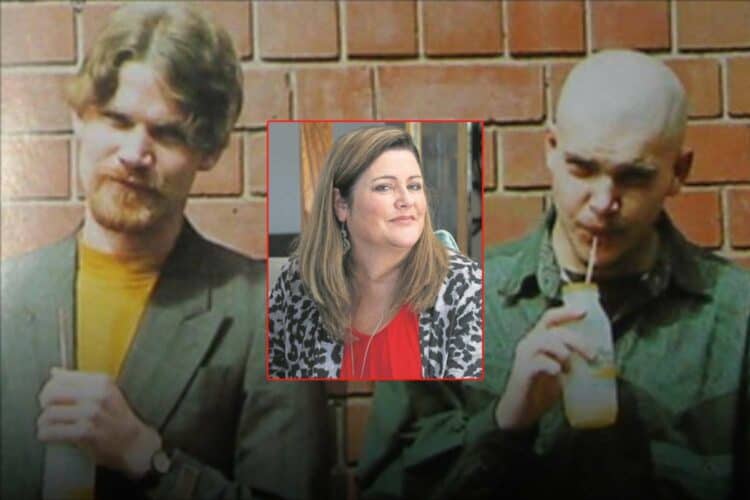Frans du Toit and Theuns Kruger, who were convicted for the brutal attack on Alison Botha in 1994, were granted parole after serving 28 years in prison, on Tuesday, 4 July 2023.
Frans du Toit and Theuns Kruger parole: Here’s everything you must know
Kruger and Du Toit had been sentenced to life imprisonment by the Port Elizabeth High Court in August 1995.
In a statement, the Department of Correctional Services explained that in accordance with the Correctional Services Act (111 of 1998), parole consideration for lifers involves a comprehensive review process.
Case Management Committees prepare profiles for each offender, followed by the first consideration conducted by the Correctional Supervision and Parole Board.
The profiles are then handed over to the National Council for Correctional Services, chaired by a High Court Judge and consisting of various professionals, such as magistrates, attorneys, clinical psychologists, social workers, criminologists, medical doctors, professors, and members of the public.
The NCCS reviews the parole profiles, including recommendations from the CMC and CSPB, before submitting them to the Minister of Justice and Correctional Services for final consideration.
The decision to grant parole is not solely based on the completion of programs or the minimum required time served.
It involves a thorough evaluation of all available information and assessment reports by the relevant authorities. The primary focus is on rehabilitation and the assessment of risks associated with reintegrating lifers back into society.
Ultimately, the Minister holds the decision-making power, as authorised by Section 78 of the Correctional Services Act 111 of 1998.
Frans du Toit and Theuns Kruger have now entered the community corrections system, where they will be required to adhere to specific parole conditions and remain under supervision for the remainder of their lives.
Their release has generated mixed reactions, with some expressing concerns about the gravity of their crimes and the potential risks associated with their reintegration.
How Alison Botha attackers almost took her life
The case of Alison Botha, the survivor of the brutal gangrape and attack orchestrated by Du Toit and Kruger, remains a testament to resilience and strength.
Since the incident, Botha has travelled to various countries, sharing her story through motivational speeches and a docudrama. Her journey of survival continues to inspire and educate others.
Alison Botha’s remarkable ability to overcome adversity and her message of personal strength and resilience have resonated with audiences worldwide.
During a speech at Nelson Mandela University, she emphasised that one’s life should not be defined by the traumas they endure but by their response to them.
The date, 18 December 1994, forever etched in Alison Botha’s memory, marked a day of unimaginable horror.
What started as a regular outing with friends at the beach culminated in a nightmare when she encountered Du Toit and Kruger. Their actions, driven by violence and aggression, inflicted severe physical and emotional trauma upon Alison.
As Botha returned home that fateful day, carrying a pile of clean laundry, her life took a harrowing turn. She was confronted by Du Toit, who held her at knifepoint.
Paralysed by fear, Botha complied with his demands as he introduced himself as Clinton and claimed he only needed her car for an hour. Little did she know that her life was about to be forever altered.
Subsequently, Du Toit picked up his accomplice, Theuns Kruger, and Botha became aware of the sinister intentions of the duo. They transported her to a secluded area outside Gqeberha (formerly known as Port Elizabeth), where she faced unimaginable violence.
Botha was subjected to rape, and the attackers then attempted to take her life.
In a testament to her extraordinary will to survive, Botha endured multiple stab wounds to her abdomen and sustained throat lacerations during the relentless attack.
Miraculously, despite her grave injuries, her leg twitched, thwarting the assailants’ attempts to end her life.
Alison Botha’s survival story has since become a source of inspiration, reminding individuals of the strength of the human spirit.
Her resilience and determination have propelled her to share her experiences with others, promoting awareness, healing, and personal growth.






